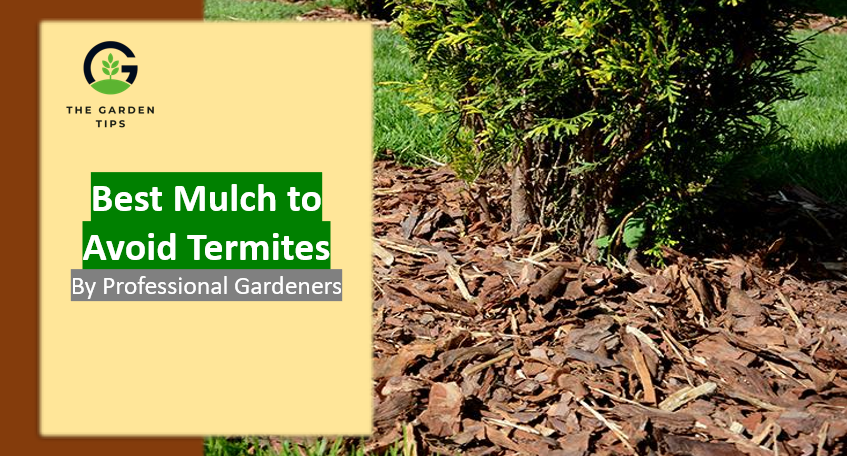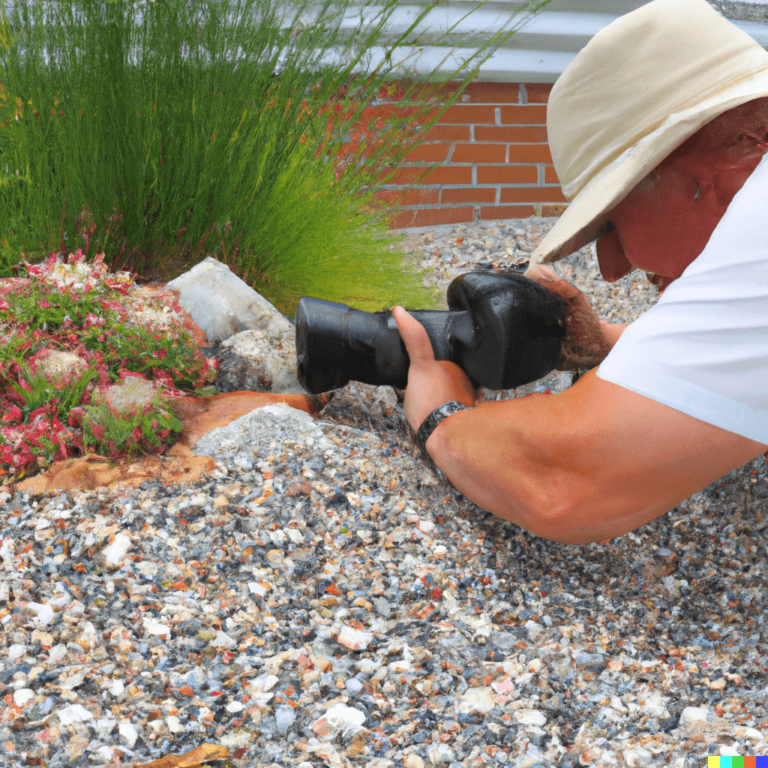When protecting trees from termites, choosing the right mulch is important. Termites are attracted to wood, and many types of mulch are made from wood chips or bark. However, several types of mulch can be used to deter termites and protect trees.

When selecting a mulch to deter termites, it is important to consider the specific needs and conditions of the tree and the area. Stone mulch, rubber mulch, copper mulch, and synthetic mulch are all effective options for deterring termites, but they do not benefit the soil or the tree. Organic mulch with termite repellent can also be used, but it is important to ensure that the repellent is safe for the tree and the environment.
Top 8 Best Mulches to Avoid Termites
· Stone mulch
Stone mulch, such as pea gravel or river rock, is an excellent choice for deterring termites. Termites do not eat or nest in stone, making them an effective barrier against infestation. Additionally, stone mulch can also add a decorative element to landscaping and retain heat, which can be beneficial in certain climates. However, it does not nourish the soil or retain moisture.
· Rubber mulch
Rubber mulch is another option that is not attractive to termites. Made from recycled tires, it is durable and long-lasting. Rubber mulch also provides a natural look and can retain moisture, but it does not nourish the soil.
· Copper mulch
Copper mulch is a new option gaining popularity as a termite deterrent. The copper ions in the mulch are toxic to termites and can prevent them from nesting. Copper mulch is also an effective barrier against other pests, such as ants and cockroaches. However, it can be expensive and not benefit the tree or the soil.
· Cypress Mulch
Cypress mulch is made from the bark of cypress trees and is an effective termite deterrent. Termites are not attracted to cypress and are also resistant to rot, making them a durable option for preventing termite infestations.
· Cedar Mulch
Cedar mulch is made from the bark of cedar trees and is an effective termite deterrent. The natural oils in cedar repel termites and other pests, making it an effective barrier against infestations.
· Synthetic mulch
Synthetic mulches, such as polyethylene or polypropylene, are another option for deterring termites. These materials are not attractive to termites and can provide a barrier against infestation. Synthetic mulches are long-lasting and can retain moisture, but they don’t benefit the soil or the tree.
· Glass Mulch
Glass mulch is made from crushed glass and is an effective termite deterrent. Termites are not attracted to glass and avoid it, making it an effective barrier against termite infestations.
· Organic mulch with termite repellent
Organic mulches such as wood chips or bark can also be used to deter termites, but it is important to treat them with a termite repellent before applying. These repellents can be a chemical or natural oil, creating an unpleasant smell or taste for termites, making the mulch less attractive to them. However, it is important to be aware of the toxicity of the repellent and any potential harm to the tree or the soil.
Important Consideration while choosing best mulch to avoid termites
It is also important to note that simply using mulch that deters termites will not eliminate the risk of infestation. Termites can still enter a tree through the roots or other means. It is important to also use other methods of termite control, such as baiting systems or chemical treatments, in conjunction with a deterrent mulch.
Final Verdict
In conclusion, the best mulch to avoid termites is not an ideal environment for termites that they are not attracted to. Mulches made from rock, gravel, rubber, copper, cypress, cedar, stone, and glass are all effective termite deterrents. They do not provide a suitable environment for termites to survive, and termites do not consume or tunnel through them.
It is important to ensure that the mulch is applied at the appropriate depth, typically no more than 3 inches, to avoid suffocating the tree’s roots. It is also important to note that mulches alone may not be enough to prevent termite infestations, and it is recommended to seek professional help if you suspect an infestation.







